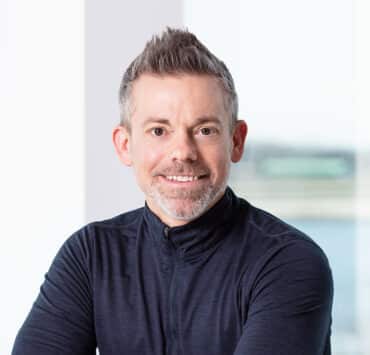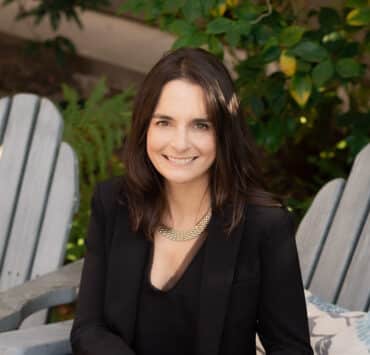|
Getting your Trinity Audio player ready...
|
After twenty years of working as in-house counsel in various media companies, Mark DeVitre was eight months into starting his own media law practice when he met Byron Allen, founder, chairman, and CEO of Allen Media Group. The company needed help navigating complicated deals and contracts for a pair of scripted sitcoms, and with DeVitre’s decades of legal experience working for the likes of Warner Bros., Fox, and various other media entities, he was the man for the job.
At first, he believed it was an opportunity to add a great new client to his list. But Allen had other plans.
“After a few meetings, Byron said he loved my work and wanted me to move in-house full-time. I was hesitant at first because I had started to gather clients and build up a business. But he said, ‘Finish that up and then come work for me. I’ll make it worth your while. I’m going to build the world’s biggest media company and I need the best team in the business,’” DeVitre says.
Inspired by Allen’s vision and his excitement, DeVitre came aboard as executive vice president and general counsel in 2012. Since then, the company has grown from having just over fifty employees primarily in Los Angeles to now 2,400 throughout the US, with 11 lawyers as part of the GC’s legal team.
Much of this growth was through strategic acquisitions both small and large, most notably the 2018 acquisition of The Weather Channel, the country’s leading weather news service for more than forty years, and the multiyear assembly of a broadcast station group of twenty-eight stations in twenty-one markets, all affiliated with the ABC, CBS, NBC, and Fox broadcast networks.
Allen Media has invested heavily in the future of local news through its popular digital app, Local Now, a leading free streaming service that offers hyperlocal news, weather, sports, and entertainment based on the user’s ZIP code. Even as the company has grown into a vertically integrated, digital media company, it has stuck to its roots, becoming one of the largest independent producers and distributors of first-run syndicated television programming for United States broadcast stations.
DeVitre admits that many of those accomplishments didn’t come easily and some strides had to be fought for in court. He and his colleagues have spent much of the past decade publicizing the disparities they see in the market, convincing some to partner with African American owned media, while also pursuing racial discrimination-based lawsuits against large companies accused of not giving Black-owned media its fair share of access to the public audience and withholding channel carriage, related advertising, and investment dollars.
He says those cases were an opportunity to tackle systemic issues that Allen and other African American entrepreneurs had contended with for decades.
“Byron had to build his company outside of the normal system because he couldn’t access the kind of capital and resources that all of his competitors did,” DeVitre says.
“So, a big part of our strategy in building the company was to say, ‘We’re not going to sit here and be discriminated against as a Black-owned media company.’ It’s not mentioned enough, but African Americans constitute 14 percent of the US population currently, and research has shown time and again that they as a group are massive consumers of media and advertising; but their access to being owners and creators of that media and related equity has not followed suit. Byron had the resources to fight, but he shouldn’t be a unicorn and he’d be the first to say it. Black-owned media must have a seat at the table,” he says.
Ultimately, all those suits settled, and the company has expanded its distribution of programming across the media landscape, recently launching an HBCU Sports division to bring Black college football, basketball, and the HBCU college experience to its largest audience ever across broadcast, cable, and streaming.
What Makes Byron Allen a Good Leader?
“One of the greatest things I’ve learned from him, having come from a background of working for large corporations and studios, is that you have to be smart and efficient with time and resources. To that end, it’s great to have a visionary leading the way saying, ‘Here’s what I want to do.’ He is open to all ideas, but as a team, we’re committed to executing on his vision, whether that’s cornering the market in TV syndication; acquiring or selling assets; or making strategic deals with bigger companies.” —Mark DeVitre
“Today, we’re now treated like a big kid on the block, and you can’t ignore us like you used to. We matter and we’re not going anywhere. With Byron’s leadership, we’ve built a company with amazing assets that have created a certain amount of scale in the media space making us a real presence in that landscape.”
DeVitre and his legal team at Allen Media are looking forward to building on those successes in the new year. They’re always on the “hunt for big assets,” DeVitre says.
“Last year, we took a very strong run at buying BET (Black Entertainment Television founded in 1980 by African American media entrepreneur, Bob Johnson) from Paramount Global, but unfortunately, they pulled the process and didn’t sell the business to anyone, including Byron or Tyler Perry, who both bid. Byron has made it clear that BET should, once again, be owned by African Americans, so we still have to be in that discussion,” DeVitre says.
“He’s also publicly said he’d like to buy other big media assets like the ABC network and station group, along with the Disney cable channels, the Tegna station group and, if it became available, not just BET but all of Paramount Global. So, I would expect to see us continue to fire on all cylinders as we try to achieve Byron’s vision for Allen Media,” he says.
So, how much closer are Allen, DeVitre, and the Allen Media team to that vision? DeVitre has reason to believe they’re on their way.
Allen recently asked six of the longtime, senior executives, including DeVitre, to join the formerly three-member board of directors as an acknowledgement that Allen Media has grown into a more mature company. The CEO wants to move even faster with decision-making authority that can identify and close both strategic and accretive deals.
“I think that signaled that Byron is getting even more serious about his big passion, building the world’s biggest media company,” DeVitre says. “Most of the other major media conglomerates, like Disney, Paramount, Warner Bros., and Comcast, are in a difficult period of time due to the continuing media and consumer migration to digital platforms and streaming.
“That competition between them all, with the related costs of trying to steer their large, unwieldy ships in that direction, seriously hurt their balance sheets and their legacy businesses,” he continues. “Meanwhile, at Allen Media, we’re actually growing in both legacy and digital media, and I believe 2024 will be our biggest year yet,” he says.
Allen Media Isn’t the World’s Biggest Media Company Yet, but It’s Inching Closer
“Starting from his dining room table thirty years ago trying to sell his first show to 1,300 American TV stations, Byron has grown Allen Media from a small TV syndication company to a vertically integrated media company that all of Wall Street, the major studios, media companies, and advertisers know about, acknowledge, and work with. We’re now a thriving part of that ecosystem. We may not be the biggest yet, but you could open the paper tomorrow to see ‘Byron acquires Paramount Global, Disney’s television and cable business, or the Tegna station group,’ or all of them for that matter. Like a modern-day Rupert Murdoch, Byron wants to build, own, and operate the world’s biggest and best media business.”
—Mark DeVitre
Expertise Spotlight
Miller Barondess LLP is a Los Angeles-based law firm specializing in litigation, trial, and appellate work in California and around the country. Founded in 2006 by trial lawyer Skip Miller, Miller Barondess LLP has grown to forty-five attorneys—including his sons Dan and Jim, as well as partners Mark Barondess and Sasha Frid—specializing in a wide range of sectors such as intellectual property, technology, real estate, healthcare, securities, entertainment and music, sports, consumer products, insurance, retail, environmental, licensing and branding, financial services, and government. The firm’s attorneys have been lead counsel in hundreds of state and federal trials and arbitrations, and have prevailed against some of the largest corporations in the world with hundreds of millions of dollars at stake. With a reputation for winning bet-the-company litigation, clients frequently hire Miller Barondess to “save the day” before trial. The firm is recognized as a U.S. Best Law Firm®, a top 25 litigation firm in Los Angeles by Business of Law magazine, and a “Most Admired Law Firm to Work For” by the Los Angeles Business Journal.


